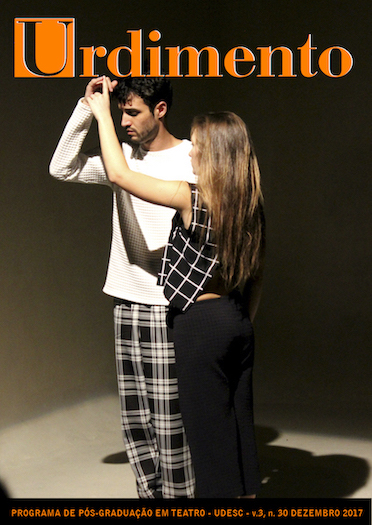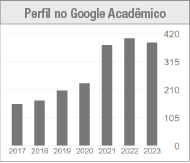Aporia narrativa e humorismo em Boca de Ouro, de Nelson Rodrigues
DOI:
https://doi.org/10.5965/1414573103302017014Abstract
Este artigo propõe uma leitura da estrutura dramática de Boca de Ouro (1959), de Nelson Rodrigues, a partir de procedimentos utilizados pelo autor, tais como a não-presença e o humorismo. Na peça, o dramaturgo coloca em evidência a volubilidade na reconstituição da memória ao projetar à cena três versões diferentes de Boca de Ouro, bicheiro carioca. Sua imagem se constitui miticamente à medida que avança a narrativa movente de suas facetas pela voz de sua ex-amante. Ao reelaborar a descrição do protagonista, o autor estabelece um jogo dramatúrgico igualmente movente, que não se preocupa em responder às lacunas da fábula, compondo assim uma aporia narrativa.
Downloads
Downloads
Published
How to Cite
Issue
Section
License
Copyright Statement
The articles published by the magazine are free to use. The copyright is all assigned to the magazine. The articles whose authors are identified represent the expression from the point of view of their authors and not the official position of the journal Urdimento. The author (s) undertakes whenever publishing material relating to the article published in Revista Urdimento mention the said publication as follows: This article was originally published by Urdimento magazine in its volume (put the volume), number (put the number) in the year of (put the year) and can be accessed at:
http://www.revistas.udesc.br/index.php/urdimento
This work is licensed under a Creative Commons Attribution 4.0 International License.




